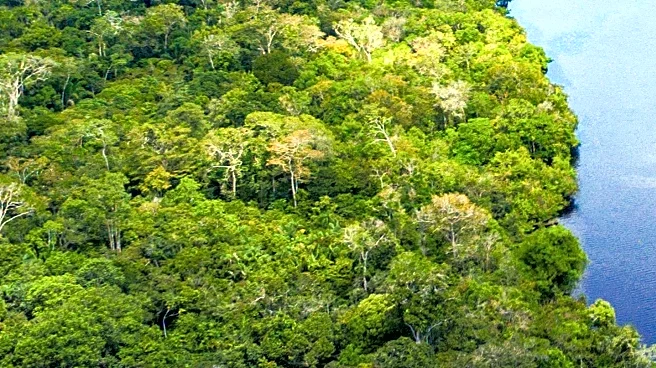What's Happening?
A study published in Nature Sustainability highlights the role of local communities in the Brazilian Amazon in conserving their environments through traditional surveillance practices. These community-led efforts offer a cost-effective alternative to conventional governmental enforcement, protecting against illegal activities such as poaching and logging. The research conducted in Carauari, Amazonas, demonstrates the efficiency and ecological significance of community-based management, emphasizing the need for recognition and support of these initiatives.
Why It's Important?
Community surveillance provides a sustainable model for conservation, leveraging local knowledge and participation to protect biodiversity. By recognizing and supporting these efforts, policymakers can enhance environmental stewardship and promote social justice. The study underscores the potential for community-driven management to complement formal conservation strategies, offering a scalable and inclusive approach to ecosystem protection.
Beyond the Headlines
The success of community surveillance in the Amazon highlights broader implications for conservation policy, emphasizing the importance of integrating traditional practices with modern frameworks. Supporting community contributions through policies and funding can foster resilience and health in ecosystems, promoting long-term sustainability. This model exemplifies how local empowerment and responsibility can drive effective environmental conservation.









